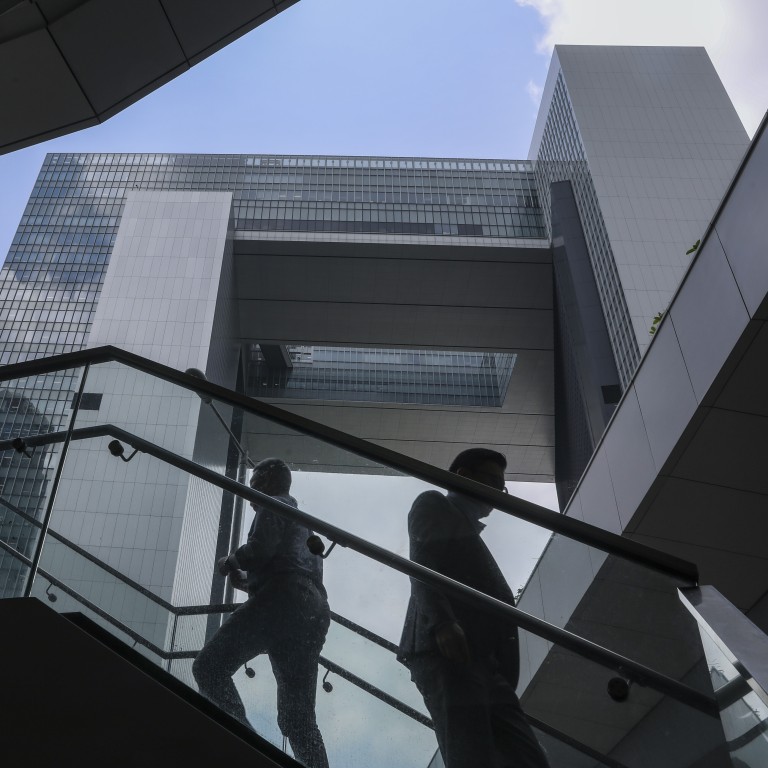
Explainer | Why escalating row over whether Hong Kong has ‘separation of powers’ in its political system is not just a fight over words
- Hong Kong leader Carrie Lam’s comments on the issue have rekindled a decades-long debate on the form of government in the city
- But what is the concept, has it ever existed in Hong Kong and why is it a sensitive topic?
Now, Lam’s high-profile rejection of the notion has rekindled a decades-long debate on the form of government in Hong Kong.

What is separation of powers?
Under the arrangement, the government is divided into separate branches, each of which has its own role and powers. The branches are usually the executive authorities, legislature and judiciary. Separation of powers as well as checks and balances between these branches are found to varying degrees in modern democracies.
Did it exist in Hong Kong before the 1997 handover? What about after?
There was no separation of powers in the Western sense when Hong Kong was under British rule before 1997. The judiciary was independent but all legislators were appointed by the governor until 1985, when functional constituencies – with electorates drawn from various trade and professional sectors – were introduced. Senior government officials were given seats in the Legislative Council until 1995.
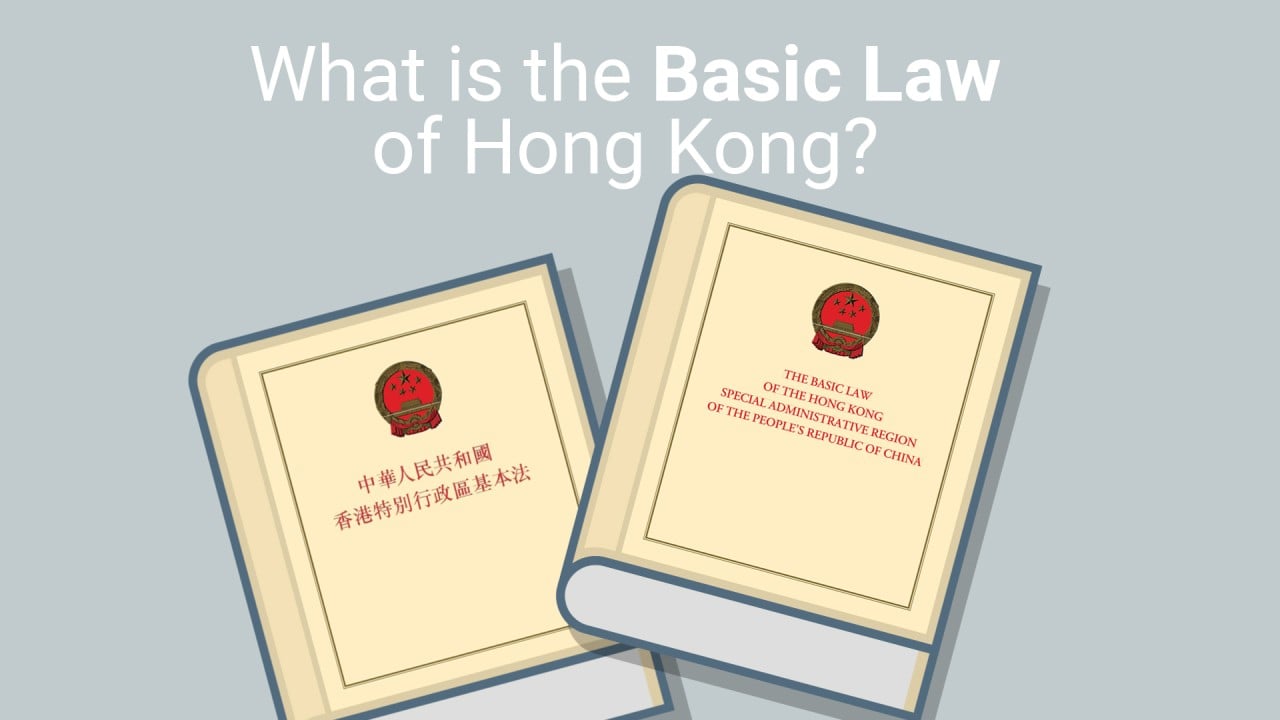
02:31
What is the Basic Law of Hong Kong?
What are the roles of the three branches as stated in the Basic Law? Are there checks and balances?
The Basic Law sets out the different roles of the executive, legislative and judicial branches.
Under Article 48, the chief executive leads the government of the special administrative region and implements directives issued by the central government.
Lam said on Tuesday that, under the Basic Law, the chief executive was the core of an executive-led system. “I am both the head of the government, and also the head of the special administrative region,” she said.
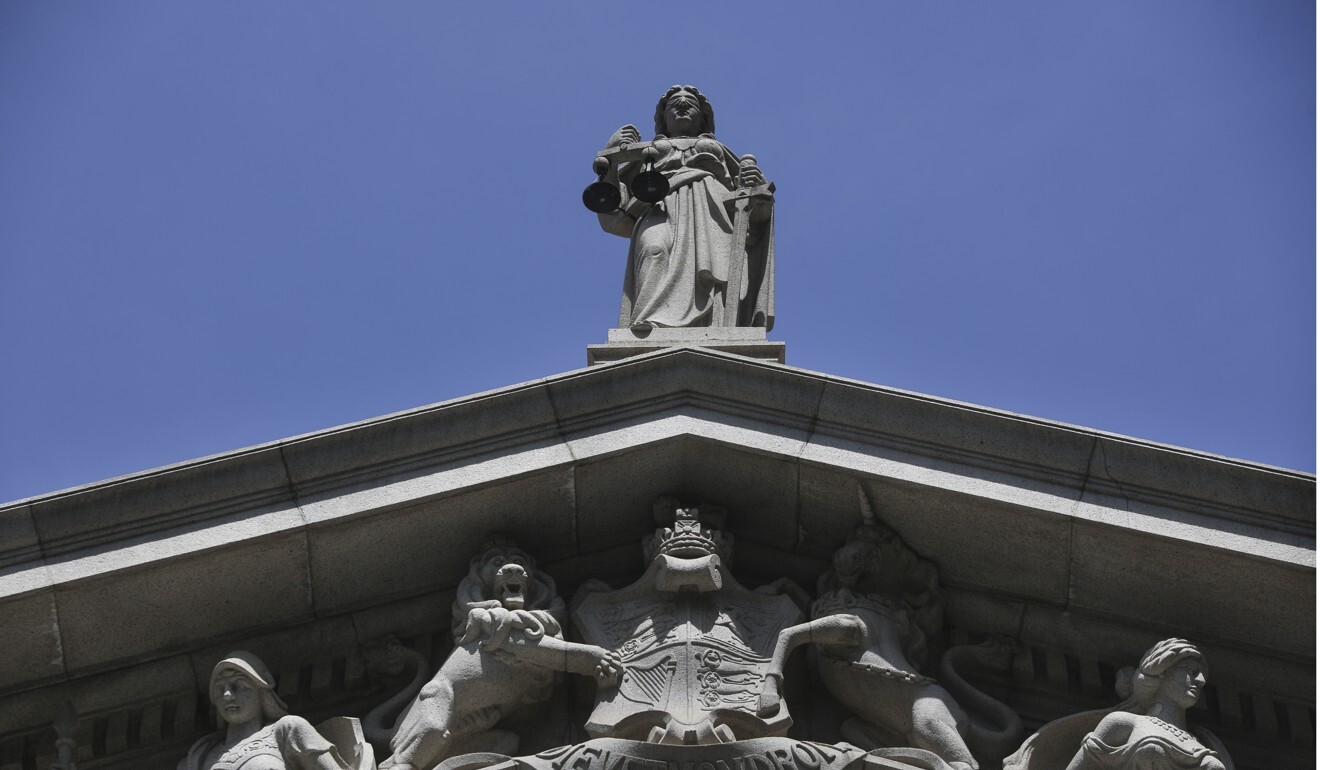
Regardless of Lam’s terminology, checks and balances between the three branches of government are a reality. The chief executive is empowered to dissolve the legislature and call elections if it refuses to pass an important bill or the budget. In both cases, if Legco stands firm, the chief executive has to resign. Lawmakers can impeach the chief executive for a serious breach of the law or dereliction of duty.
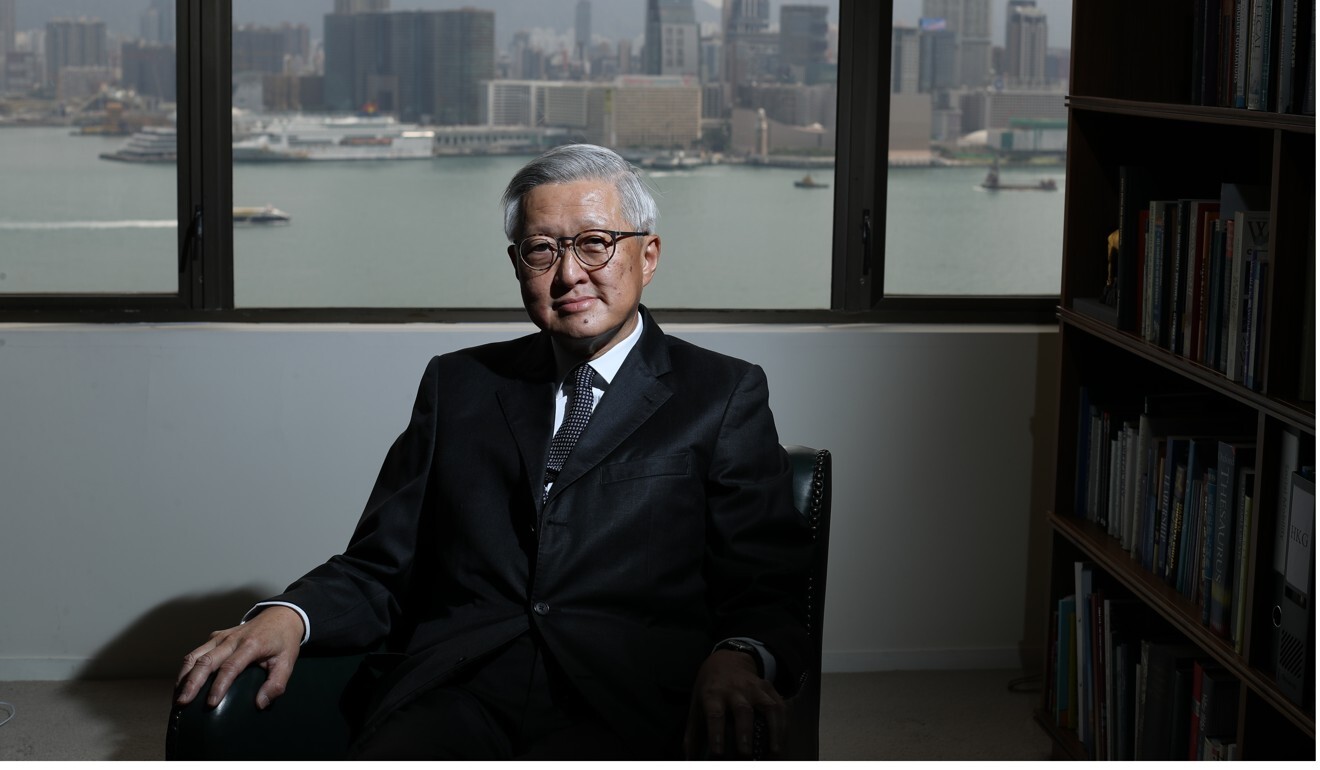
The chief executive appoints judges, but on the recommendation of a body called the Judicial Officers Recommendation Commission. It is understood that no chief executive has ever rejected its recommendations. The courts exercise oversight of the executive branch through the judicial review process.
There have been instances where the courts checked the chief executive’s power.
Education chief denies liberal studies textbook changes are censorship
In 2006, the Court of First Instance ruled in a judicial review sought by then lawmaker “Long Hair” Leung Kwok-hung that it was unconstitutional for the government to issue “executive orders” to officers in the police and Independent Commission Against Corruption to carry out covert surveillance operations.
In April 2015, the same court ruled it was unlawful of then leader Leung Chun-ying and his cabinet to deny a free-to-air broadcasting licence to Hong Kong Television Network.
Do the United States and Britain use the system?
In the US, each branch of government has the power to check the others and prevent any one arm from becoming too powerful. For instance, Congress has the power to create legislation, the president has the power to veto it, and the Supreme Court may declare laws unconstitutional.
Lau Siu-kai, vice-president of semi-official think tank the Chinese Association of Hong Kong and Macau Studies, said under the US version of separation of powers, the three branches enjoyed nearly the same status and powers.
“It’s not the design of Hong Kong’s political system under the Basic Law,” he said.
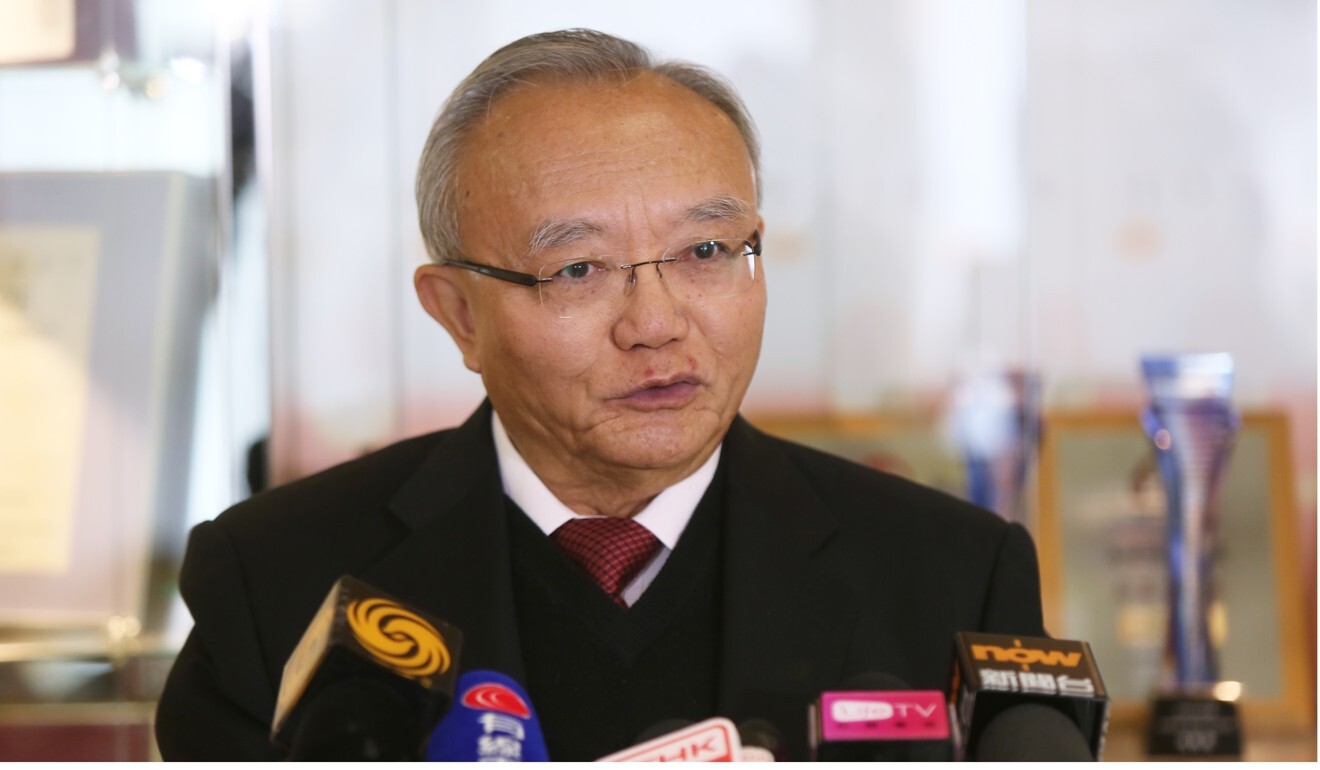
In Britain, parliament, the legislature, is dominated by the executive because the government is formed by the leader of whichever party wins the most seats in the House of Commons.
What have Chinese officials said about Hong Kong’s political system?
The debate on the form of government in Hong Kong after 1997 began in the mid-1980s. A report submitted to the Basic Law Drafting Committee by its political subgroup in November 1986 said members argued that in principle the special administrative region should adopt a model involving separation of powers among the three branches of government.
A total of 59 members served on the drafting committee, including 23 from Hong Kong.
But China’s paramount leader Deng Xiaoping rejected the idea. He told members of the committee in April 1987 that “the Hong Kong system of government should not be completely Westernised” and it would be inappropriate to copy the mode of “separation of three powers”. After Deng’s comments, the committee ceased using the term.
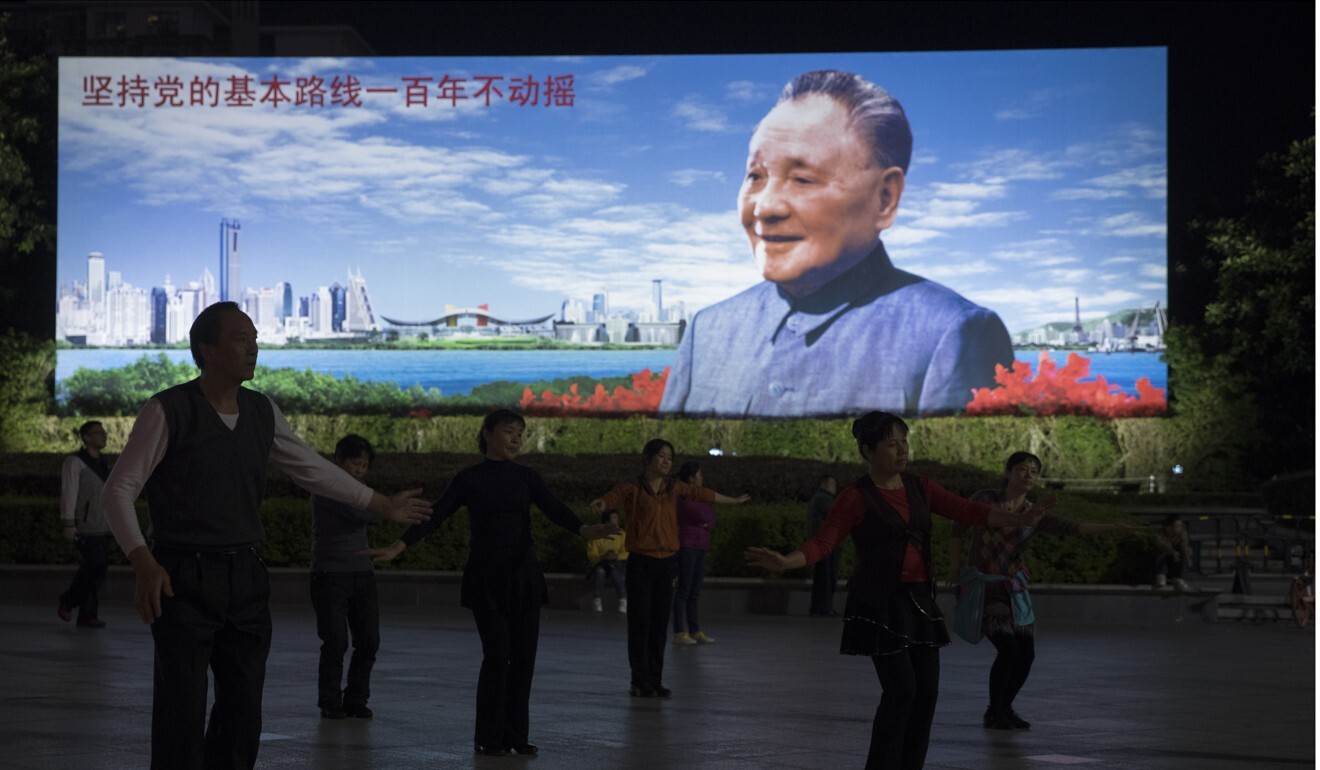
In an explanation to the National People’s Congress on the Basic Law in 1990, drafting committee chairman Ji Pengfei said: “The executive authorities and the legislature should regulate each other as well as coordinate their activities. The chief executive must have real power, which, at the same time, should be subject to some restrictions.”
Neither the phrase “executive-led system” nor “separation of powers” is stated in the Basic Law.
But mainland Chinese officials and academics have argued that the “executive-led system” is the fundamental principle in designing Hong Kong’s political system, and also a crucial legislative intent.
Cabinet adviser says Hong Kong textbooks should explain ‘separation of powers’
In September 2015, Zhang Xiaoming, then director of Beijing’s liaison office in the city, said the chief executive had special legal status “transcendent” of the executive, legislature and judiciary.
Emphasising that separation of powers was not exercised, he described the chief executive as being at the core of an “executive-led, judicially independent political system”.

What have Hong Kong’s top judges said over the years?
In 2001, then chief justice Andrew Li Kwok-nang said judicial independence was the core of separation of powers between the executive, legislature and the judiciary in Hong Kong.
Then in 2010, he said Hong Kong’s system involved checks and balances between the three branches. “The independent judiciary has a vital constitutional role to ensure that the acts of the executive and the legislature comply fully with the Basic Law and the law,” he said.
Four years later, his successor, Geoffrey Ma Tao-li said the Basic Law “sets out clearly the principle of the separation of powers between the legislature, the executive and the judiciary” and the different roles they played.

Why do mainland officials keep highlighting the ‘transcendent’ role of the chief executive? Why does the debate keep popping up?
Academics believe mainland Chinese officials’ repeated highlighting of the chief executive’s “transcendent” role is part of Beijing’s attempts to clear what it sees as the misunderstanding of some Hongkongers about the Basic Law and the relationship between the central government and Hong Kong.
Lau, of the think tank and a key adviser to Beijing, said “separation of powers” advocates in Hong Kong intended to undermine the chief executive’s status.
“Such attempts undermine the chief executive’s authority and the central government’s jurisdiction over Hong Kong,” he said. “The central government sees an urgent need to clarify such misconceptions.”
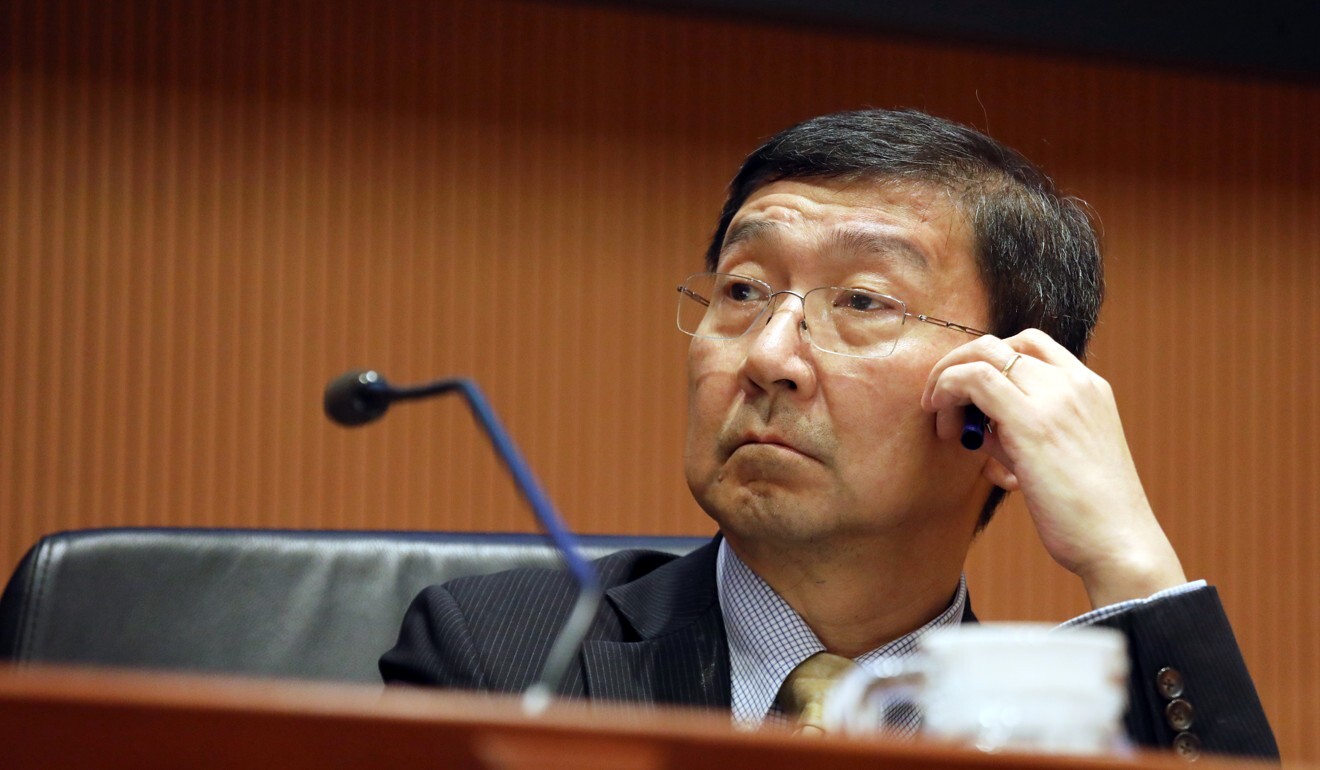
Lam maintained on Tuesday that when judges cited the phrase “separation of powers” in the past, they were mainly talking about the division of work among the three branches.
But Johannes Chan Man-mun, a constitutional law scholar at the University of Hong Kong, said she was just “playing with words”. “A division of labour is the first step of separation of powers. The next question you have to answer is the relationship between different divisions that have different functions,” he said.
“The Basic Law has set out in some detail the relationship among the three branches, and the essence is checks and balances. That is the meaning of separation of powers,” Chan said.
But Lau said for Beijing, it was more than a debate on semantics. “The central government sees it as a power struggle with those advocating an alternative interpretation of the Basic Law,” he said.
Additional reporting by Chris Lau

